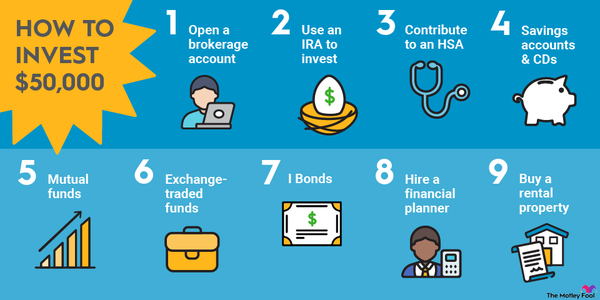How To Invest In Someone Else's Business

Imagine yourself at a cozy neighborhood cafe, the aroma of freshly brewed coffee filling the air. You're listening to a friend, their eyes sparkling with passion as they describe their dream: a sustainable clothing boutique, a tech startup solving a real-world problem, or perhaps a bakery specializing in gluten-free treats. Their enthusiasm is infectious, and you find yourself thinking, "How can I be a part of this?"
Investing in someone else's business can be a rewarding experience, both financially and personally. This isn't just about writing a check; it's about supporting innovation, fostering entrepreneurship, and potentially sharing in the success of a venture you believe in.
Understanding the Landscape of Investing
There are several avenues to explore when considering investing in another person's business. Each option comes with its own set of advantages and risks, and understanding these nuances is crucial for making an informed decision.
Debt Financing: Lending a Helping Hand
One common approach is debt financing, essentially providing a loan to the business. You would agree on an interest rate and repayment schedule, offering a relatively predictable return on your investment.
This is often a good option if you're seeking a more stable and less risky investment, as you have a contractual agreement for repayment.
However, the upside is limited to the agreed-upon interest, and you don't share in the business's profits beyond that.
Equity Investing: Becoming a Partner
Equity investing involves purchasing a portion of the company's ownership. This means you become a shareholder and have a stake in the business's future success.
The potential returns are higher, as your investment grows in value along with the company's profitability.
However, it's also a riskier proposition, as you could lose your entire investment if the business fails. According to the Small Business Administration (SBA), a significant percentage of small businesses don't survive their first few years, highlighting the inherent risks involved.
Crowdfunding: Joining the Collective
Crowdfunding platforms have emerged as a popular way for entrepreneurs to raise capital from a large number of individuals. Sites like Kickstarter and Indiegogo offer various investment models, from donations to equity-based investments.
This can be a good option for smaller investments and supporting businesses you're passionate about.
However, due diligence is still crucial, as the risk of fraud or failure is present.
Venture Capital and Angel Investing: High-Risk, High-Reward
For more established startups with significant growth potential, venture capital firms and angel investors may be an option. These investors typically provide large sums of capital in exchange for a substantial equity stake.
This level of investing often requires significant expertise in evaluating business plans and market opportunities.
While the potential for returns is high, so is the risk, and these opportunities are often reserved for accredited investors with considerable financial resources.
Due Diligence: The Key to Smart Investing
Regardless of the investment approach you choose, performing thorough due diligence is essential. This involves researching the business, its market, its management team, and its financial projections.
Don't be afraid to ask tough questions and seek professional advice from financial advisors or accountants.
Understanding the business's strengths and weaknesses, as well as the competitive landscape, will help you assess the risk and potential reward of your investment.
Legal Considerations: Protecting Your Investment
It's also crucial to have a clear legal agreement in place that outlines the terms of your investment. This agreement should specify the amount of your investment, your ownership stake (if any), your rights and responsibilities, and the process for exiting the investment.
Consult with an attorney to ensure that the agreement is legally sound and protects your interests.
A well-drafted agreement can prevent misunderstandings and disputes down the road. Contracts are important.
Building a Relationship: Investing in the Person
Finally, remember that investing in someone else's business is also about investing in the person behind the business. Do you believe in their vision? Do you trust their judgment? Are they committed to making the business succeed?
A strong personal connection can be invaluable, providing support, mentorship, and encouragement during challenging times.
Trust and communication are key. Investing in a business run by someone you admire and believe in can be just as rewarding as the financial returns.
Investing in someone else's business is a journey that requires careful consideration, thorough research, and a willingness to take calculated risks. By understanding the different investment options, conducting thorough due diligence, and building strong relationships, you can increase your chances of success and contribute to the growth of a promising venture.
It's a chance to be part of something bigger, to support innovation, and to witness firsthand the power of entrepreneurship. It's about more than just money; it's about investing in dreams.


















